The Sixth Extinction: An Unnatural History
By Elizabeth Kolbert
WINNER OF THE 2015 PULITZER PRIZE FOR GENERAL NONFICTION
ONE OF THE NEW YORK TIMES BOOK REVIEW’S 10 BEST BOOKS OF THE YEAR
A NATIONAL BOOK CRITICS CIRCLE AWARD FINALIST
SHORTLISTED FOR THE PEN/E.O. Wilson Literary Science Writing Award
A Note on the Author
Elizabeth Kolbert was a New York Times reporter for fourteen years until she became a staff writer at the New Yorker in 1999. She is the author of Field Notes from a Catastrophe: A Frontline Report on Climate Change.
Praise for The Sixth Extinction:
‘Kolbert is a witty, deft writer with an eye for vivid colour. She can take us from sun-blistered desert island on the Great Barrier Reef to the sopping Peruvian jungle…Hers is a deadly message, delivered in elegant prose, and we can’t afford to ignore it.’
Sunday Telegraph
‘Elizabeth Kolbert has established herself as one of out very best science writers…In her timely, meticulously researched and well-written book, Kolbert combines scientific analysis and personal narratives to explain it to us’
Al Gore, New York Times
‘Excellent…The Sixth extinction is the kind of book that helps us recognize the actual planet we live upon’
New York Review of Books
‘What she saw, and has recorded without melodrama or sentimentality in this important book is often heartbreaking and deeply alarming…This book can’t offer solutions, much less a cure. But its purpose is instead to issue a wake-up call, even if more many species it has come too late.’
Prospect
‘With her lucid and lovely prose, Elizabeth Kolbert lays out the sad and gripping facts of our moment on earth: that we’ve become a geological force, driving vast swaths of creation over the brink. A remarkable addition to the literature of our haunted epoch’
Bill McKibben, author of The End of Nature
‘Her evidence, fluidly and authoritatively presented as she criss-crosses the Earth’s wild corners is worrying…Kolbert traces the history of extinctions, and of biologists growing awareness since the 18th century…Engaging’
Evening Standard
‘Kolbert traces the history of extinctions, and of biologists growing awareness since the 18th century…While plants and animals can evolve to cope with a hotter world, that will take far too long for humans…That is what makes this engaging study scary’
Scotland on Saturday
‘Her writing is vivid and pacy…She’s also humorous and vivacious, aware that guilt and fear are less effective calls to arms than wonder and love of the natural world’
Intelligent Life
‘Kolbert’s incisive and engaging writing style delivers a powerful punch…Combines gripping reportage with detailed scientific evidence to tell the story of extinct and threatened species’
National Geographic
‘Kolbert brings a succinct elegance to the task. As a journalist rather than a scientist, she makes no assumptions about the reader’s prior knowledge. Her field trips to coral reefs or bat caves are beautifully reported, even if the disasters that we are wreaking upon nature are bound to induce despair’
Literary Review
‘Kolbert traces the way the human wake precisely matches the millennial waves of extinction…such a book should be depressing, but Kolbert’s isn’t.
London Review of Books
Over the last half a billion years, there have been five mass extinctions, when the diversity of life on earth suddenly and dramatically contracted. Scientists around the world are currently monitoring the sixth extinction, predicted to be the most devastating extinction event since the asteroid impact that wiped out the dinosaurs. This time around, the cataclysm is us. In The Sixth Extinction, two-time 
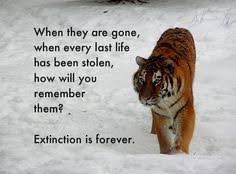 winner of the National Magazine Award and New Yorker writer Elizabeth Kolbert draws on the work of scores of researchers in half a dozen disciplines, accompanying many of them into the field: geologists who study deep ocean cores, botanists who follow the tree line as it climbs up the Andes, marine biologists who dive off the Great Barrier Reef. She introduces us to a dozen species, some already gone, others facing extinction, including the Panamanian golden frog, staghorn coral, the great auk, and the Sumatran rhino. Through these stories, Kolbert provides a moving account of the disappearances occurring all around us and traces the evolution of extinction as concept, from its first articulation by Georges Cuvier in revolutionary Paris up through the present day. The sixth extinction is likely to be mankind’s most lasting legacy; as Kolbert observes, it compels us to rethink the fundamental question of what it means to be human.
winner of the National Magazine Award and New Yorker writer Elizabeth Kolbert draws on the work of scores of researchers in half a dozen disciplines, accompanying many of them into the field: geologists who study deep ocean cores, botanists who follow the tree line as it climbs up the Andes, marine biologists who dive off the Great Barrier Reef. She introduces us to a dozen species, some already gone, others facing extinction, including the Panamanian golden frog, staghorn coral, the great auk, and the Sumatran rhino. Through these stories, Kolbert provides a moving account of the disappearances occurring all around us and traces the evolution of extinction as concept, from its first articulation by Georges Cuvier in revolutionary Paris up through the present day. The sixth extinction is likely to be mankind’s most lasting legacy; as Kolbert observes, it compels us to rethink the fundamental question of what it means to be human.
Prologue
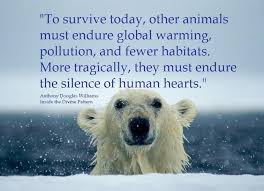
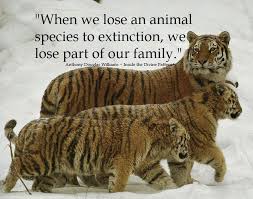 Beginnings, it’s said, are apt to be shadowy. So it is with this story, which starts with the emergence of a new species maybe two hundred thousand years ago. The species does not yet have a name – nothing does – but it has the capacity to name things.
Beginnings, it’s said, are apt to be shadowy. So it is with this story, which starts with the emergence of a new species maybe two hundred thousand years ago. The species does not yet have a name – nothing does – but it has the capacity to name things.
As with any young species, this one’s position is precarious. Its numbers are small, and it’s range restricted to a slice of Eastern Africa. Slowly its population grows, but quite possibly then it contracts again – some would claim nearly fatally – to just a few thousand pairs.
The members of the species are not particularly swift or strong or fertile. They are, however, singularly resourceful. Gradually they push into regions with different climates, different predators and different prey. None of the usual constraints of habitat or geography seem to check them. They cross rivers, plateaus, mountain ranges. In coastal regions, they gather shellfish, farther inland, they hunt mammals. Everywhere they settle, they adapt and innovate. On reaching Europe, they encounter creatures very much like themselves, but stockier and probably brawnier, who have been living on the continent far longer. They interbreed with these creatures and then, by one means or the other, kill them off.
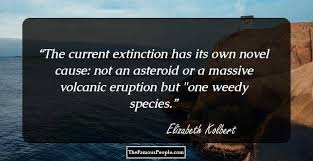
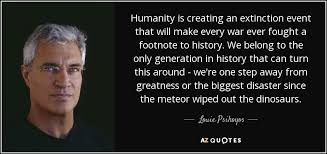 The end of this affair will turn out to be exemplary. As the species expands its range, it crosses paths with animals twice, ten and even twenty times its size: huge cats, towering bears, turtles as big as elephants, sloths that stand five meters tall. These species are more powerful and often fiercer. But they are slow to breed and are wiped out.
The end of this affair will turn out to be exemplary. As the species expands its range, it crosses paths with animals twice, ten and even twenty times its size: huge cats, towering bears, turtles as big as elephants, sloths that stand five meters tall. These species are more powerful and often fiercer. But they are slow to breed and are wiped out.
Although a land animal, our species – ever inventive – crosses the sea. It reaches islands inhabited by evolutions outliers: birds that lay thirty-centimetre-long eggs, pig sized hippos, giant skinks. Accustomed to isolation, these creatures are ill-equipped to deal with the newcomers or their fellow travellers (mostly rats). Many of them, too, succumb.
The process continues in fits and starts, for thousands of years, until the species, no longer so new, has spread to practically every corner of the globe. At this point, several things happen more or les at once that allow Homo sapiens, as it has come to call itself, to reproduce at an unprecedented rate. In a single century, the population doubles; then it doubles again, and then again. Vast forests are razed. Humans do this deliberately, to feed themselves. Less deliberately, they shift organisms from one continent to another, reassembling the biosphere.

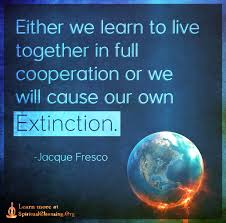 Meanwhile, an even stranger and more radical transformation is under way. Having discovered subterranean reserves of energy, human beings begin to change the composition of the atmosphere. This, in turn, alters the climate and the chemistry of the oceans. Some plants and animals adjust by moving. They climb mountains and migrate towards the poles. But a great many – at first hundreds, then thousands, and finally perhaps millions – find themselves marooned. Extinction rates soar, and the texture of life changes.
Meanwhile, an even stranger and more radical transformation is under way. Having discovered subterranean reserves of energy, human beings begin to change the composition of the atmosphere. This, in turn, alters the climate and the chemistry of the oceans. Some plants and animals adjust by moving. They climb mountains and migrate towards the poles. But a great many – at first hundreds, then thousands, and finally perhaps millions – find themselves marooned. Extinction rates soar, and the texture of life changes.
No creature has ever altered life on the planet in this way before, and yet other, comparable events have occurred. Very, very occasionally in the distant past, the planet has undergone change so wrenching that the diversity of life has plummeted. Five of these ancient events were catastrophic enough that they’re put in their own category: the so-called Big Five. In what seems like a fantastic coincidence, but it is probably no coincidence at all, the history of these events is recovered just as people come to realize they are causing another one. When it is still too early to say whether it will reach the proportions of the Big Five, it becomes known as the Sixth Extinction.
The story of the Sixth extinction, at least as I’ve chosen to tell it, comes in thirteen chapters. Each tracks a species that is in some way emblematic – the American mastodon, the great auk, an ammonite that disappeared at the end of the Cretaceous along with the dinosaurs. The creatures in the early chapters are already gone, and this part of the book is mostly concerned with the great extinctions of the past 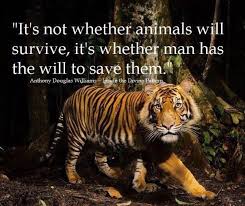
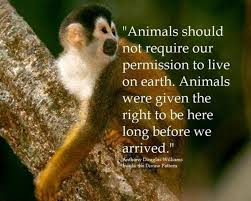 and the twisting history of their discovery, starting with the work of the French naturalist Georges Cuvier. The second part of the book takes place very much in the present – in the increasingly fragmented Amazon rainforest, on a fast-warming slope in the Andes, on the outer reaches of the Great Barrier Reef. I chose to go to these places for the usual journalistic reasons – because there was a research station there or because someone invited me to tag along on an expedition. Such is the scope of the changes now taking place that I could have gone pretty much anywhere and, with the proper guidance, foud signs of them. One chapter contains a die-off happening more or less in my own backyard (and, quite possibly, in yours).
and the twisting history of their discovery, starting with the work of the French naturalist Georges Cuvier. The second part of the book takes place very much in the present – in the increasingly fragmented Amazon rainforest, on a fast-warming slope in the Andes, on the outer reaches of the Great Barrier Reef. I chose to go to these places for the usual journalistic reasons – because there was a research station there or because someone invited me to tag along on an expedition. Such is the scope of the changes now taking place that I could have gone pretty much anywhere and, with the proper guidance, foud signs of them. One chapter contains a die-off happening more or less in my own backyard (and, quite possibly, in yours).
If extinction is a morbid topic, mass extinction is, well, massively so. It’s also a fascinating one. In the pages that follow, I try to convey both sides: the excitement of what’s being learned as well as the horror of it. My hope is that the readers of this book will come away with an appreciation of the truly extraordinary moment in which we live.
The Sixth Extinction: Elizabeth Kolbert
The Sixth Extinction – Now in High Quality! (Full Documentary)
Elizabeth Kolbert “The Sixth Extinction”
& Fraud in Generic Drug Industry Threaten Patients’ Health
Elizabeth Kolbert: How the 6th extinction threatens humans
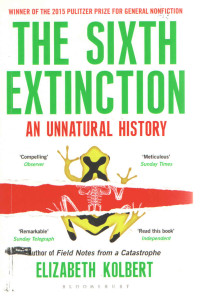
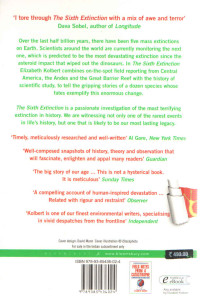
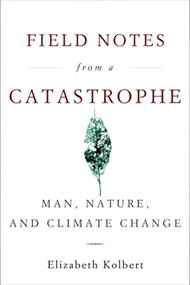

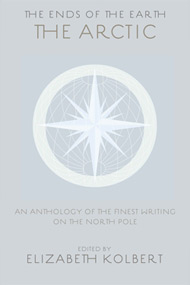
2 thoughts on “The Sixth Extinction: Book”